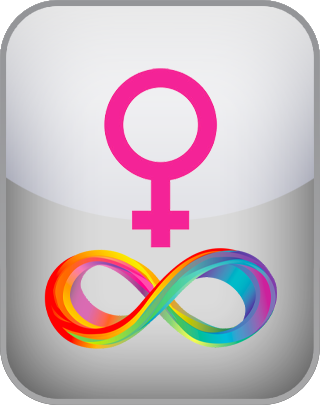Autism in Women and Girls Test
The Autism Spectrum Quotient (AQ) Test is a self-assessment tool designed to measure traits associated with autism spectrum disorder (ASD). Originally developed by Simon Baron-Cohen and colleagues at the University of Cambridge in 2001, this version has been adapted to better screen for autism in women and girls—a group in which autism is often underdiagnosed. Research, including studies by Dr. Sarah Bargiela, author of Camouflage: The Hidden Lives of Autistic Women, highlights that autistic women and girls may present differently than males, often masking their difficulties with social mimicry, internalizing challenges, or developing intense special interests that align with societal norms (e.g., reading, art, or animals). This test aims to identify these subtler traits, though it is not a diagnostic tool. A formal diagnosis requires evaluation by a licensed professional.
Instructions: Please read each question carefully and indicate whether it applies to you or not.
Question 1 of 50
I prefer to do things with others rather than on my own.
| Disagree | Agree |
NEXT
The Autism Spectrum Quotient (AQ) Test for Women and Girls is a thoughtfully crafted screening tool aimed at shedding light on traits associated with autism spectrum disorder (ASD) in a population where it often goes unnoticed. Autism has historically been viewed through a male-centric lens, leaving many women and girls undiagnosed or misunderstood. This adaptation of the original AQ Test, first introduced by Simon Baron-Cohen in 2001, seeks to address that gap by focusing on how autistic traits might manifest differently in females. Drawing from research, including insights from Dr. Sarah Bargiela, it acknowledges that women and girls may camouflage their struggles, blending into social settings through mimicry or retreating into rich inner worlds of intense interests. This test isn’t just a list of questions—it’s a stepping stone toward self-awareness and, potentially, support.
Comprising 50 carefully designed questions, the test explores five key areas: social skills, attention switching, attention to detail, communication, and imagination. Each section captures a slice of experience that might resonate with autistic women and girls, from a preference for solitary pursuits to a knack for noticing patterns others miss. The scoring system is straightforward yet nuanced, assigning points based on responses that align with autistic traits, resulting in a total between 0 and 50. While it’s not a diagnostic tool, it offers a snapshot that can prompt deeper reflection or a conversation with a professional. Its accessibility—free and easy to take—makes it a valuable resource for anyone curious about their neurotype.
What sets this version apart is its sensitivity to the unique ways autism can present in females. For instance, a girl might excel at pretending to fit in while feeling inwardly overwhelmed, or a woman might channel her focus into a socially acceptable hobby like reading rather than a stereotypically “autistic” interest like train schedules. The test doesn’t judge—it illuminates. Backed by statistical validation and professional input, it balances reliability with practicality, ensuring the results are meaningful yet not definitive. Whether you’re exploring for yourself or a loved one, this AQ Test invites you to consider the possibility of autism in a new light, offering clarity in a world where women’s experiences are too often overlooked.
This AQ Test consists of 50 questions across five areas where autistic traits may manifest, particularly in women and girls:
- Social Skill: Comfort in social settings and ability to navigate relationships, often masked in females.
- Attention Switching: Flexibility in shifting focus, with a tendency toward routine or intense interests.
- Attention to Detail: Sensitivity to sensory details or patterns, sometimes expressed in creative or intellectual pursuits.
- Communication: Processing verbal and non-verbal cues, with potential challenges hidden by compensatory strategies.
- Imagination: Abstract thinking and creativity, which may differ from stereotypical expectations.
Each question offers four responses: "definitely agree," "slightly agree," "slightly disagree," or "definitely disagree." Scoring assigns 1 point for responses aligned with autistic traits (noted as "REVERSED" where applicable), yielding a total score from 0 to 50.
Answer each question based on how you feel or behave in general. There is no “neutral” option—choose the response that best fits. Results will provide insight into autism-related traits but are not conclusive. If your score or experiences suggest autism might be relevant, consider consulting a professional.

 English
English  Español
Español  Português
Português  Deutsch
Deutsch  Français
Français  Italiano
Italiano  Polski
Polski  Русский
Русский  Türkçe
Türkçe  العربية
العربية  日本語
日本語  한국어
한국어  ไทย
ไทย  汉语
汉语  हिन्दी
हिन्दी  Bahasa
Bahasa 